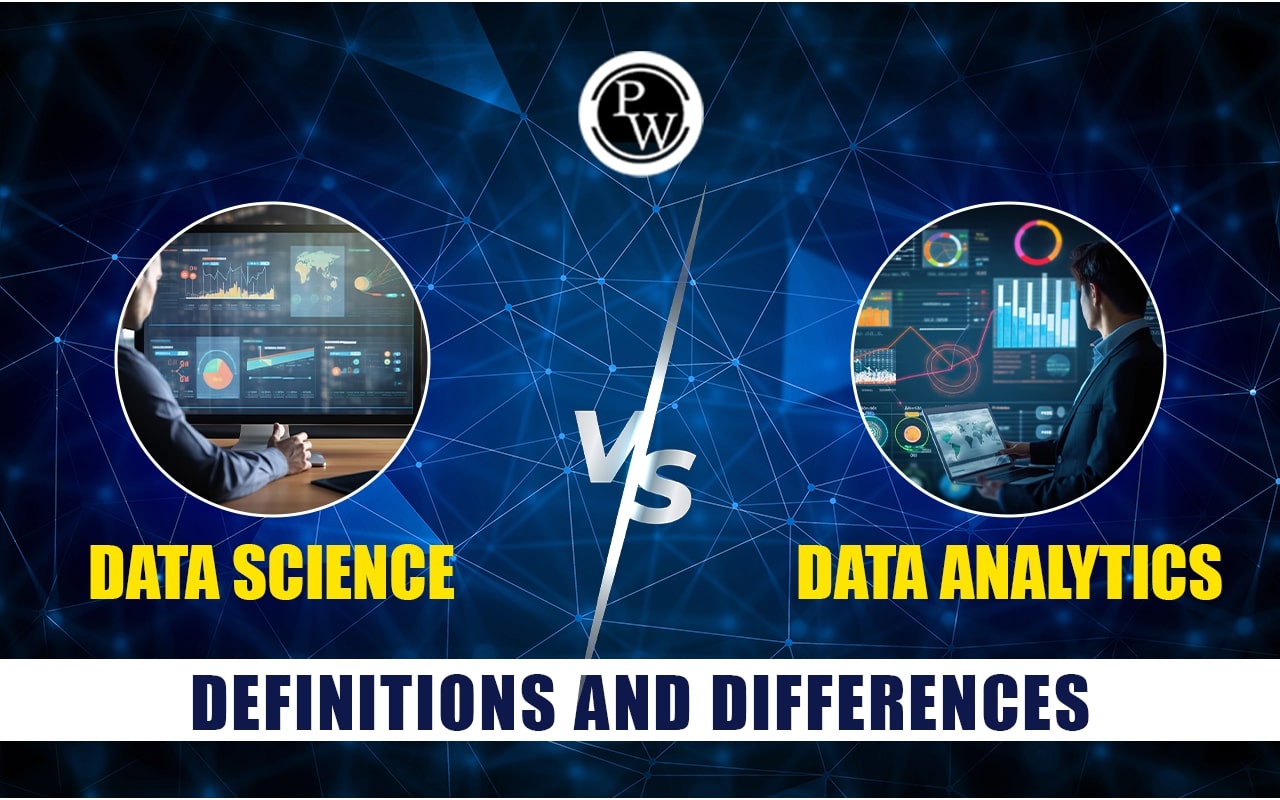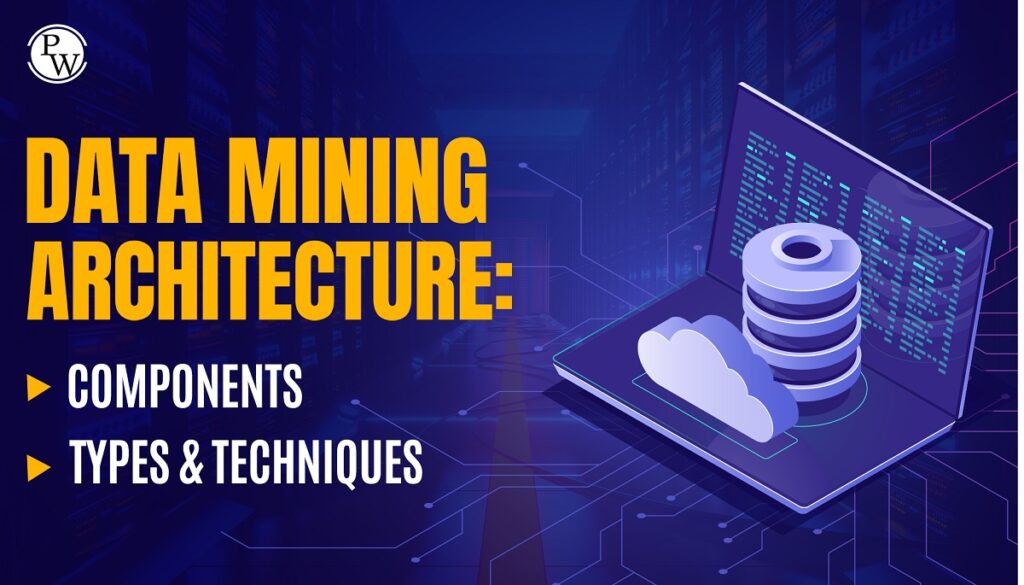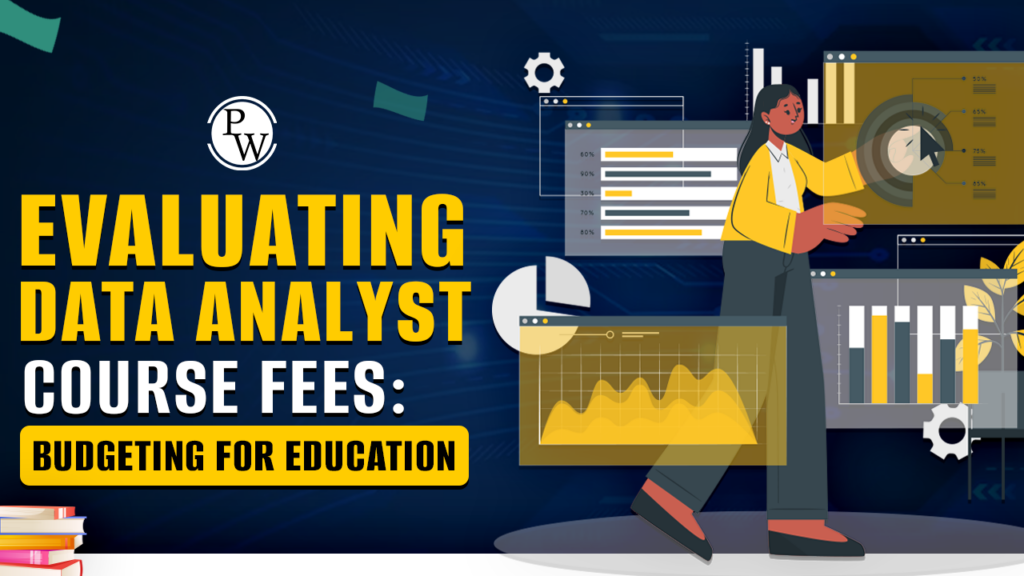Data Science vs Data Analytics: In the era of big data, the ability to extract meaningful insights from vast datasets has become crucial for informed decision-making. Two terms frequently used in this context are “Data Science” and “Data Analytics.” While they may sound similar, they represent distinct fields with unique processes, skill sets, and applications. In this blog, we’ll compare Data Science vs Data Analytics, their definitions, processes, the roles involved, and the key differences between them.
If you’re looking to start a career in data science, then the PhysicsWallah Full-Stack Data Science course could be highly beneficial. It covers everything you need to know to succeed in the data science world. Plus, it is mentored by the top leaders in the industry!
Data Science Definition
Data Science blends disciplines, extracting insights from both structured and unstructured data. Techniques span statistical analysis, machine learning, data cleansing, and visualisation. The core aim is unveiling patterns, trends, and correlations, informing decisions in diverse industries.
Data Scientist Role & Skills Needed
Data Scientists lead the data-driven revolution, linking raw data to actionable insights. Their role demands a mix of technical expertise, statistical acumen, and domain-specific knowledge.
Role of a Data Scientist
A Data Scientist’s main tasks involve creating and executing processes for data mining, statistical analysis, and machine learning. They bridge the gap between the technical details of data and broader business goals. Key aspects of their role include:
- Problem Formulation: Data Scientists collaborate with stakeholders to define the problem at hand and translate it into a data-driven question. This involves a deep understanding of the industry, business goals, and the specific challenges to be addressed.
- Data Exploration: Before diving into complex modelling, Data Scientists explore and familiarise themselves with the dataset. This involves identifying patterns, outliers, and potential areas of interest that guide subsequent analyses.
- Model Development: Leveraging statistical and machine learning techniques, Data Scientists construct models tailored to the specific problem. These models range from predictive algorithms to classification systems, each chosen to extract relevant insights.
- Validation and Testing: Rigorous validation and testing are integral to the Data Science process. Data Scientists ensure that their models are robust, accurate, and capable of generalising to new data, avoiding over-fitting or under fitting issues.
- Interpretation and Communication: The final stage involves interpreting the results in a meaningful way. Data Scientists must communicate complex findings to non-technical stakeholders, making the insights accessible and actionable for decision-makers.
Essential Skills
- Programming Proficiency: Mastery of programming languages such as Python or R is fundamental. Data Scientists use these languages for data manipulation, model development, and the creation of data visualisations.
- Statistical Knowledge: A strong foundation in statistics enables Data Scientists to choose appropriate models, validate results, and derive meaningful insights from data distributions.
- Machine Learning Expertise: Data Scientists should be well-versed in a range of machine learning algorithms, from linear regression to deep learning. This expertise allows them to select the most suitable approach for a given problem.
- Domain Expertise: Understanding the nuances of the industry or field of application is crucial. Domain expertise allows Data Scientists to contextualise their analyses and generate insights that align with specific business needs.
- Problem-Solving Skills: Data Scientists are, above all, problem solvers. They approach challenges with creativity and analytical thinking, identifying innovative solutions to complex issues.
Also Check: Data Scientist Job Description: Role, Responsibilities
Data Analytics Definition
In the landscape of data-driven decision-making, Data Analytics emerges as a specialised field focused on extracting insights from historical data to facilitate strategic decision-making. It operates at the intersection of statistics, mathematics, and domain expertise, aiming to unravel patterns and trends within datasets. While Data Science has a broader scope encompassing predictive modelling and complex algorithm development, Data Analytics zeroes in on understanding the implications of past events or decisions.
Data Analytics Process
Data Analytics is a strategic process that involves examining and interpreting historical data to glean valuable insights. This process is tailored to answer specific questions, evaluate past performance, and guide informed decision-making.
Data Exploration
Similar to Data Science, the Data Analytics process begins with a thorough exploration of the available data. Analysts review datasets to understand their structure, identify patterns, and gain a preliminary understanding of the information at hand. During this phase, analysts may leverage descriptive statistics and visualisations to reveal trends, anomalies, or potential areas of interest within the historical data. Visualisations tools such as Tableau or Power BI can be instrumental in creating intuitive graphs and charts for better comprehension.
Statistical Analysis
Data Analysts utilise statistical methods to delve deeper into historical data. Statistical analysis helps uncover patterns, relationships, and correlations within the dataset. This phase often involves hypothesis testing, regression analysis, and other statistical techniques to validate or disprove assumptions. For example, a retail business might use statistical analysis to determine if there is a significant correlation between promotional activities and increased sales during specific periods.
Data Visualisation
Data Analytics shines in simplifying intricate data into clear visual representations, a vital skill for communicating insights to non-technical stakeholders. Data Analysts use diverse visualization tools like line charts, bar graphs, pie charts, and heatmaps to convey findings. These visuals narrate a compelling story about historical data, making it easily understandable for decision-makers without a technical background.
Data Analyst Role & Skills Needed
Data Analysts play a crucial role in organisations by translating raw data into actionable insights. Their responsibilities encompass a range of activities, from data interpretation to trend identification, all aimed at supporting informed decision-making processes. Below, we delve into the specific duties and the essential skills required for a successful career as a Data Analyst.
Responsibilities
Data Interpretation
Data Analysts are tasked with interpreting complex datasets, extracting meaningful patterns, and translating them into insights that stakeholders can readily comprehend. They often work with large datasets, examining trends and anomalies to derive valuable information.
Trend Identification
Identifying trends and patterns within historical data is a key responsibility. This involves a keen eye for detail and the ability to discern relevant information from vast datasets.
Reporting and Communication
Data Analysts are required to effectively communicate their findings to non-technical stakeholders. This includes creating reports, dashboards, and presentations to convey insights in a clear and understandable manner.
Decision Support
Providing support for decision-making processes by offering data-driven insights and recommendations based on thorough analysis of historical data.
Essential Skills
Data Analysis Tools
Proficiency in tools such as Microsoft Excel, SQL, or specialised analytics software is fundamental for Data Analysts to manipulate and analyse data efficiently.
Statistical Knowledge
Understanding statistical methods is crucial for accurately interpreting data and drawing valid conclusions. This includes familiarity with concepts such as regression analysis, hypothesis testing, and probability.
Data Visualization
The ability to create clear and compelling visualisations is essential for Data Analysts. Tools like Tableau or Power BI are commonly used to present data in an accessible and visually appealing manner.
Attention to Detail
Ensuring data accuracy and precision is paramount. Data Analysts must have a meticulous approach to data cleaning and validation to produce reliable results.
Problem-Solving
Data Analysts need strong problem-solving skills to tackle complex data challenges. This involves the ability to approach issues methodically and derive effective solutions.
Domain Knowledge
Having a solid understanding of the industry or field in which they operate enhances a Data Analyst’s ability to contextualise data and extract insights relevant to business goals.
Profiles of Prominent Data Analysts
Highlighting successful Data Analysts and their journeys can provide valuable insights into the diverse career paths within the field. For example, profiles of individuals who have made significant contributions in sectors like finance, healthcare, or e-commerce can inspire aspiring Data Analysts and showcase the varied applications of analytical skills across different industries. Learning from the experiences of those who have excelled in the field can offer valuable advice and guidance for those navigating their own careers in data analysis.
Data Science vs Data Analytics Salary in India
Understanding the salary landscape is crucial for professionals considering a career in Data Science or Data Analytics, particularly in the dynamic job market of India.
Salary Trends
The remuneration for Data Science and Data Analytics roles in India reflects the demand for specialised skills. Generally, Data Science roles command higher salaries than their Data Analytics counterparts. The complexity of tasks, the broader skill set required, and the strategic impact of Data Science contribute to the salary disparity. Data Scientists, involved in tasks like developing intricate machine learning models and creating algorithms, often receive higher compensation due to the specialised nature of their work. On the other hand, Data Analysts, focusing on interpreting historical data to provide insights, may receive slightly lower compensation.
Influencing Factors
Several factors influence salary levels in both Data Science and Data Analytics roles:
- Experience: Seasoned professionals with a proven track record in handling complex projects and delivering impactful insights usually command higher salaries.
- Location: Salaries can vary significantly based on the geographic location of the job. Metropolitan areas and tech hubs often offer higher compensation to attract top talent.
- Industry: The industry in which a professional works can impact salary levels. For instance, Data Scientists in finance or healthcare might receive higher compensation due to the critical nature of their work.
- Education: Individuals with advanced degrees, such as a master’s or Ph.D., may command higher salaries, especially in Data Science roles where a deeper understanding of algorithms and statistical models is often required.
- Skills and Certifications: Possessing in-demand skills and relevant certifications can positively influence salary negotiations. Continuous upskilling and staying abreast of industry trends are crucial for career growth and increased earning potential.
Salary Negotiation Tips
Negotiating a competitive salary is a crucial aspect of securing a satisfying position in Data Science or Data Analytics. Here are some practical tips for salary negotiation:
- Research Industry Standards: Understanding the average salary range for your role, considering factors like experience and location, provides a benchmark for negotiation.
- Highlight Achievements: Clearly articulate your achievements, showcasing how your skills and contributions align with the organisation’s goals. Demonstrating a strong track record can strengthen your negotiating position.
- Emphasise Unique Skills: If you possess specialised skills or certifications, emphasise how they add value to the organisation. This can justify a higher salary based on your unique contributions.
- Consider the Entire Package: Salary negotiations extend beyond the base salary. Factor in benefits, bonuses, and opportunities for professional development when evaluating the overall compensation package.
- Express Enthusiasm: Communicate your genuine interest in the role and the organisation. Employers appreciate candidates who are not solely motivated by compensation but are genuinely invested in contributing to the company’s success.
Navigating salary negotiations with confidence and strategic awareness can lead to a more rewarding compensation package and set the stage for a successful career in either Data Science or Data Analytics. Remember, it’s not just about the salary figure but the overall value and growth opportunities the position offers.
Also read: Data Science vs Data Analytics Salary Scope in 2023
Data Science vs Data Analytics
In delving into the comparison between Data Science and Data Analytics, it’s essential to recognize the nuanced differences that set these two disciplines apart. While both are integral components of the data ecosystem, their scopes, objectives, and methodologies vary significantly.
Unique Purposes and Applications
Data Science
Data Science is akin to an expansive universe, encompassing a broad spectrum of activities aimed at extracting valuable insights from data. Its primary purpose revolves around predictive modelling, utilising advanced statistical algorithms and machine learning techniques. Data Scientists often work on complex problems that require a forward-looking approach, seeking to forecast future trends, predict outcomes, or optimise decision-making processes.
Data Analytics
On the other hand, Data Analytics is more retrospective, focusing on dissecting historical data to discern patterns, understand past events, and derive actionable insights. Data Analysts employ statistical methods and visualisation tools to provide a comprehensive understanding of what has happened, facilitating informed decision-making based on historical trends.
Complementary Nature
Collaborative Synergy
While Data Science and Data Analytics have distinctive goals, they are not mutually exclusive. In practice, they often complement each other seamlessly within organisations. Data Scientists might lay the groundwork by developing intricate models, and Data Analysts subsequently leverage these models to extract practical insights from real-world data.
Decision-Making Spectrum
Data Science tends to occupy the forefront of decision-making processes, especially in scenarios where predictive modelling and algorithmic precision are paramount. On the other hand, Data Analytics is instrumental in providing a contextual understanding of past performance, enabling organisations to refine strategies based on historical outcomes.
Striking the Right Balance
Organisational Requirements
The choice between emphasising Data Science or Data Analytics depends on the specific needs and goals of an organisation. Companies dealing with forward-looking strategies or innovative product development may lean more towards Data Science. In contrast, those focused on refining existing processes or understanding customer behaviour may prioritise Data Analytics.
Skill Set Alignment
The skill sets required for Data Science and Data Analytics, while overlapping in some areas, also exhibit unique characteristics. Data Scientists often possess advanced programming, machine learning, and domain-specific skills. In contrast, Data Analysts excel in statistical analysis, data visualisation, and a deep understanding of the business context.
Also read: Best Data Science Courses In India With Placements
Difference Between Data Science and Data Analytics with Examples
Understanding the nuanced differences between Data Science and Data Analytics is crucial for professionals navigating the data-driven landscape.
Methodology
The primary distinction lies in their methodologies. Data Science involves a broader and more comprehensive approach, employing advanced statistical modelling, machine learning algorithms, and predictive analytics. On the other hand, Data Analytics is more retrospective, focusing on interpreting historical data using statistical analysis and business intelligence tools.
Purpose and Scope
Data Science is forward-looking, aiming to uncover patterns and trends that can inform future strategies and predictions. For example, a healthcare organisation might use Data Science to develop predictive models for patient outcomes. In contrast, Data Analytics concentrates on examining past performance to derive actionable insights, such as analysing customer behaviour to improve marketing strategies.
Complexity of Analysis
Data Science deals with complex analyses that often require extensive computational power and sophisticated algorithms. It involves deep learning, natural language processing, and other advanced techniques. Data Analytics, while still complex, generally employs simpler statistical methods and tools to draw insights from historical data.
Decision-Making Timeframe
Data Science is often associated with long-term strategic decision-making. For instance, a technology company might use Data Science to forecast market trends for the next five years. Data Analytics, on the other hand, focuses on more immediate and tactical decisions, like optimising a marketing campaign based on its current performance.
Examples
Data Science Example
Imagine an e-commerce company employing Data Science to develop a recommendation system. By analysing customer browsing behaviour, purchase history, and social media interactions, the system predicts what products a user is likely to buy in the future. This forward-looking approach enhances the user experience and increases sales.
Data Analytics Example
Consider a retail chain using Data Analytics to assess the effectiveness of a recent promotional campaign. By analysing sales data during and after the campaign, the company can determine the impact on customer purchasing behaviour, helping them refine future marketing strategies.
Data Science vs Data Analytics vs Data Analyst
Beyond the distinctions between Data Science and Data Analytics, it’s essential to understand how these roles differ from that of a Data Analyst.
Data Scientist vs Data Analyst
Data Scientists focus on the entire data science process, from collecting and cleaning data to building complex models and interpreting results. They often have a broader skill set, including programming, machine learning, and domain-specific knowledge. In contrast, Data Analysts primarily work with historical data, focusing on statistical analysis, visualisation, and providing actionable insights for immediate decision-making.
Data Analytics vs Data Analyst
While these terms are sometimes used interchangeably, Data Analytics is the broader field encompassing the entire process of analysing data, including both historical and real-time data. A Data Analyst’s role specifically involves working with historical data, interpreting trends, and providing insights to support decision-making.
Career Paths and Specializations
Understanding the distinctions between these roles can help individuals carve out their career paths within the broader data-related professions. Some professionals may choose to specialise in Data Science, focusing on advanced modelling and algorithm development, while others may find their niche in Data Analytics, concentrating on interpreting historical data for immediate business needs.
Also read: How to Become a Data Analyst in 2023
Conclusion
In the dynamic data landscape, Data Science’s forward-looking predictive modelling complements Data Analytics’ retrospective insights. Data Scientists and Data Analysts bring unique skills, serving both long-term strategies and immediate business needs. Recognizing these distinctions opens diverse career paths. The synergy between Data Science and Data Analytics provides a holistic approach for effective data-driven decisions. Continuous learning and adaptation to industry trends are crucial in this ever-expanding field, empowering professionals to transform raw data into actionable insights, contributing to positive change in our data-centric world.
Are you looking for a rewarding and high-paying career? Data science is one of the most in-demand fields today. Enroll in PW Skills Full Stack Data Science Pro course today and be prepared for the future of work. With this course, you’ll gain the skills you need to solve real-world problems and make a difference in the world. Enroll today and start your journey to becoming a data science changemaker.
FAQs
Can you explain the role of a Data Analyst in a business setting?
Data Analysts interpret historical data, identify trends, and provide actionable insights to support decision-making within a business.
What statistical techniques are commonly used in Data Analytics?
Data Analysts often employ statistical techniques to analyse historical data, such as regression analysis, hypothesis testing, and correlation analysis.
How does Data Science contribute to decision-making in the finance industry?
In finance, Data Science can be applied for risk assessment, fraud detection, and portfolio optimization to make informed investment decisions.
What distinguishes a Data Scientist from a Data Analyst in terms of skills?
Data Scientists typically require advanced skills in machine learning, statistical modelling, and programming, whereas Data Analysts focus on data interpretation, visualisation, and statistical analysis.
How does the Data Science process differ from the Data Analytics process?
While both involve data exploration and analysis, the Data Science process includes predictive modelling and complex algorithm development, whereas Data Analytics is more focused on historical data analysis.
Are there specific industries where Data Analytics is particularly valuable?
Data Analytics is valuable in various industries, including marketing, finance, healthcare, and retail, where historical data analysis can inform decision-making.
What role does domain expertise play in the skills of a Data Scientist?
Domain expertise is crucial for a Data Scientist as it enhances the understanding of business goals, enabling the development of more relevant and effective models.
What are some common data analysis tools used by Data Analysts?
Data Analysts often use tools like Excel, SQL, and specialised analytics software for data manipulation, statistical analysis, and visualisation.
How do salary levels differ between Data Science and Data Analytics roles in India?
Generally, Data Science roles command higher salaries than Data Analytics roles due to the additional complexity and skill set required.
What are some factors that can influence salary levels in Data Science and Data Analytics?
Factors such as experience, location, and industry can significantly impact salary levels in both Data Science and Data Analytics roles.





